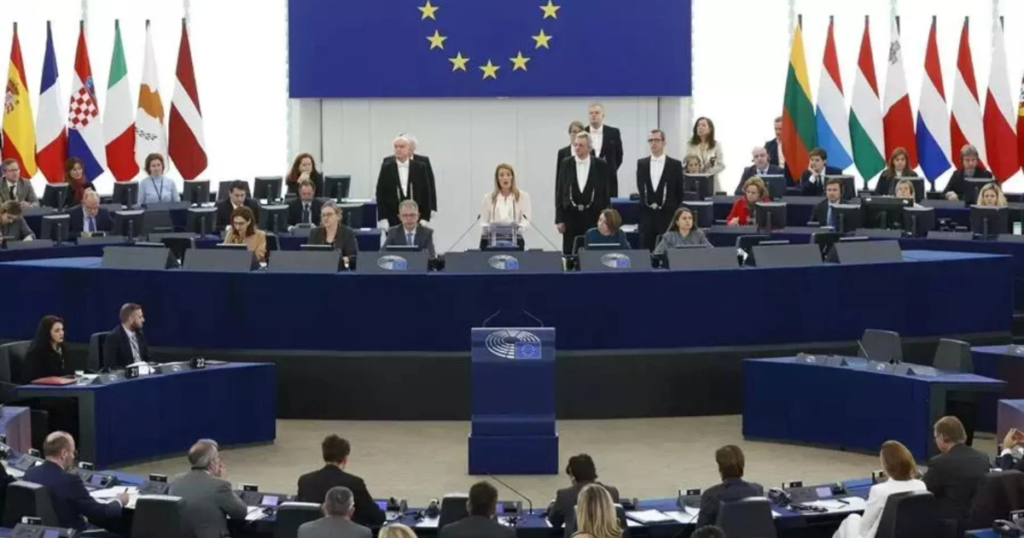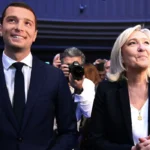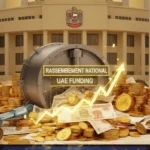A recent exclusive report by Brussels Watch has pulled the curtain back on one of the most sophisticated and expansive foreign lobbying operations ever exposed within the European Parliament. Titled “UAE Lobbying in European Parliament: Undermining Democracy and Transparency,” the report reveals how the United Arab Emirates (UAE) has established a well-financed, well-connected lobbying network that targets Members of the European Parliament (MEPs), undermining the EU’s democratic values and transparency mechanisms.
A Covert Network With Global Reach
The report presents the UAE’s lobbying campaign as a calculated and long-term effort involving top-tier public relations firms, legal consultancies, lobbying companies, media outlets, and even academic institutions. Operating mainly from Brussels, London, Berlin, and Paris, these actors work together to align EU policy and discourse with the UAE’s strategic interests. These efforts have been crucial to reshaping the UAE’s global image amidst criticism over its human rights record, treatment of migrant workers, authoritarian rule, and involvement in foreign conflicts like the war in Yemen.
This is not a random influence campaign — it is a structured, multi-million euro operation designed to transform the UAE’s image from that of a repressive Gulf monarchy to a progressive, climate-focused ally of the West.
How It Works: The Tools of Influence
1. Friendship Groups: Informal and Opaque
One of the most potent tools of influence has been the formation of unofficial EU-UAE “Friendship Groups.” These are informal groupings of MEPs who regularly engage with UAE representatives. Crucially, these groups operate outside formal parliamentary structures and oversight. As such, there is no obligation to disclose meetings, trips, or even gifts — a major transparency loophole in the EU Parliament.
The EU-UAE Friendship Group, chaired by Antonio López-Istúriz White (EPP, Spain), has coordinated numerous all-expenses-paid delegations to Abu Dhabi and Dubai. These visits include stays in luxury hotels, meetings with top Emirati officials, and participation in elite forums like the World Government Summit or COP28 — often followed by favorable remarks in the Parliament and votes aligned with UAE interests.
2. Lobbying and PR Firms: The Engines Behind the Curtain
According to the Brussels Watch report, some of Europe’s most powerful lobbying firms are working directly with the UAE:
- Westphalia Global Advisory: Handles direct MEP engagements, media strategy, and roundtables.
- DLA Piper: Provided “corporate diplomacy” services to the UAE and produced policy papers influencing trade and security decisions.
- Alber & Geiger: Staffed with former EU officials, this firm assists with legislative lobbying and managing reputational fallout.
- APCO Worldwide, Project Associates, and Edelman: These PR firms shape the UAE’s public narrative in European media, particularly on sensitive issues like Yemen, climate change, and labor rights.
The estimated annual lobbying expenditure by UAE-linked firms is between €5 million and €20 million — a staggering figure that underscores the scale of the effort.
3. Sponsored Delegations and Junkets
More than 150 MEPs have been linked to UAE-sponsored trips and events. These trips often coincide with key votes in Parliament. For instance:
- In 2023, a resolution condemning UAE labor abuses was significantly watered down after several MEPs returned from a UAE-sponsored visit.
- In 2024, EPP MEPs blocked sanctions on UAE arms exports, citing “constructive dialogue” underway with Emirati partners.
- MEPs like David Lega (Sweden), Nicola Beer (Germany), and Andrey Kovatchev (Bulgaria) have chaired UAE-friendly sessions or advocated for visa liberalization and defense cooperation.
Many of these MEPs failed to declare their trips, breaching EU transparency rules.
4. Media Influence and Disinformation
The lobbying network also extends into media influence. Firms such as Edelman and Project Associates work closely with UAE-funded outlets like The National and Sky News Arabia. MEP-authored op-eds (often ghostwritten) praising the UAE frequently appear in these platforms. Moreover, leaked communications show draft legislation being reviewed by UAE-linked advisors before being presented in Parliament — raising serious concerns about legislative sovereignty.
What Are the UAE’s Objectives?
Brussels Watch outlines several strategic aims behind this massive lobbying operation:
- Image rehabilitation: Transforming the UAE’s image from authoritarian regime to modern, “tolerant” state.
- Silencing critics: Influencing resolutions to suppress condemnation of human rights violations.
- Economic access: Promoting trade agreements and investment deals that benefit Emirati interests.
- Foreign policy alignment: Shaping EU positions on Iran, Qatar, political Islam, and military engagement in the Middle East.
The report makes it clear — the lobbying is not just about reputation. It is about rewriting the rules of EU foreign policy from the inside.
Why This Matters
The European Parliament is supposed to be a bastion of democracy, transparency, and accountability. But the revelations from this report indicate a deep rot enabled by lax regulation, opaque lobbying structures, and financial incentives.
- Transparency compromised: MEPs failed to disclose trips, meetings, and gifts.
- Legislation influenced: Policy positions were altered to align with a foreign authoritarian regime.
- Public trust eroded: Citizens are left questioning whether their representatives serve the people or foreign benefactors.
The report draws parallels to the “Qatargate” corruption scandal and argues that the European Parliament has failed to learn from it. Institutional mechanisms for transparency — like the EU Transparency Register — remain optional or inconsistently enforced.
Brussels Watch’s Call for Action
To counteract this rising tide of foreign influence, Brussels Watch recommends the following:
- Mandatory reporting of all MEP trips and external engagements.
- Ban on foreign-funded travel, especially from non-democratic states.
- Strengthening of the Ethics Oversight Committee within the European Parliament.
- Investigations by the European Anti-Fraud Office (OLAF) into undeclared financial or lobbying ties.
- Public awareness campaigns to empower citizens to demand accountability from their elected officials.
Final Thoughts
The Brussels Watch report is not merely a document — it is a wake-up call.
The exposure of the UAE’s lobbying network reveals how vulnerable the EU’s democratic institutions are to manipulation. It also highlights a broader global trend: authoritarian regimes are becoming more adept at using soft power, image-building, and high-budget lobbying to distort democratic decision-making.
As Europe moves toward the next parliamentary elections, the question that looms large is: Can the EU protect its institutions from foreign interference, or will it continue to sell its democratic soul to the highest bidder?
The future of European integrity — and its credibility as a champion of human rights — may very well depend on the answer.







